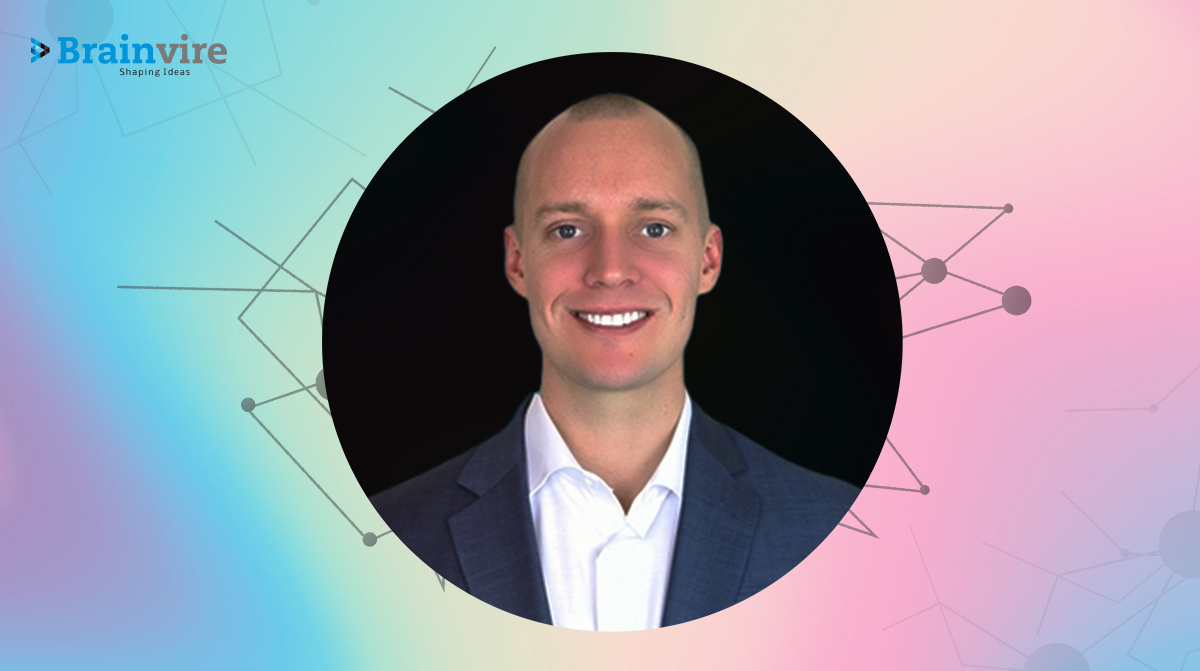
Larry Kim is the founder of MobileMonkey- The World’s Best Chat Marketing Platform (Facebook Messenger, SMS, Web Chat). MobileMonkey is an effective platform for marketers belonging to all business sizes. It helps users to create powerful ChatBot without coding. Besides, users can enjoy these benefits free of cost.
Larry Kim is also one of the founders of WordStream, Inc.- a leading provider of Facebook, AdWords, and keyword tools used by millions of marketers across the world. On behalf of their customers, the company employs over three hundred people and manages billions of dollars of ad spend.
As a contributor to CNBC and Inc. Magazine, he has been ranked the #8 most popular author on Medium. The company’s key interests consist of Facebook Ads, AdWords, Entrepreneurship, and Start-ups. Larry also writes a weekly column called “In The Trenches” that covers topics such as social media marketing, content marketing, entrepreneurship, paid search and other start-up woes. He also offers guest lectures for MBA classes at Harvard & MIT.
1. How to effectively use MobileMonkey for an ecommerce business?
Our chatbot builder, MobileMonkey can showcase and recommend products to customers, based on their preferences and purchase history.
It can also announce promotions and sales to customers who opt-in to updates via sponsored messages.
If they abandon their carts, MobileMonkey can remind them to review and rethink their purchase, courtesy of Facebook click-to-Messenger ads.
Finally, if they happen to have problems or questions regarding their purchases, MobileMonkey can assist them.
Here’s a comprehensive review by Chatbots.org on how MobileMonkey can work to your advantage.
2. How has video marketing helped in maximizing your sales reach?
Video marketing increases online presence and brand awareness, as well as giving your brand a more distinct personality.
The more you do video marketing with authenticity, the more trust your brand garners from your audience.
You also get to engage with your audience through video, thus increasing the chances of turning them into leads or even conversions.
3. Tell us why PPC and SEO are better when used together?
Using PPC and SEO together is all about visibility, and they boost each other in fantastic ways.
They can share keyword data, thus letting you optimize them together by seeing which keywords perform best.
you can also take from your best performing enterprise ppc management ad copy and have that inform your organic content strategy.
Feeds from your online store can also be integrated into AdWords results, thanks to Google’s focus on ecommerce.
In turn, you can use site search data to inform your PPC keywords, thus creating a cycle that can sustain itself.
4. What are the top 3 CRO (Conversion Rate Optimization) strategies to implement in 2020?
First, you can influence users through social proof and their FOMO (fear of missing out), making your products more immediately enticing.
Second, lead capture forms can also be used to get leads with potentially high conversion rates.
Third, you can use chatbot forms for instant lead generation. This great works for getting emails from webinars or ebooks people are signing up for.
5. What’s the ultimate way to optimize the ROI from paid campaigns (Google ads)?
You can try dynamic keyword insertion (DKI) in ad headlines to get a lot more leads, even if some may think it can bring in low-quality leads.
Couple this with targeting consumers based on income level, thus giving you a way to filter those leads.
Turn off automatic audience targeting expansion while you’re at it and turn off AdSense for mobile apps.
That can offset the bad leads you may get from using DKI.
6. What are the best ways (campaigns) to start ecommerce brand marketing via paid channels?
Once you’ve determined your sales and lead generation strategy, you go for channels that work best—namely Google ads, Facebook ads, and Amazon ads.
You then adjust your SEO and content marketing according to your advertising in those paid channels.
Then you do all the other stuff to support them, like influencer and social media marketing.
This multi-pronged approach can help you make the most out of your ecommerce marketing.
7. What is the difference between manual and auto bid campaigns in Google ads? What are the pros and cons of the same?
Manual bidding is set at the keyword level, wherein the bids stick until the advertiser decides to change them.
It’s still the best place to start for PPC beginners, but it takes time and effort to do and can be prone to getting wrong without information and experience.
Automated bidding does it for you, letting you save on time and energy that can be directed elsewhere.
However, it’s not a replacement for PPC experts as it can’t make decisions like a human can.
8. What according to you is the best campaign to get solid conversions for the service industry?
The best channel for this is Facebook ads as it has the biggest audience among social media platforms.
But of course, quality is more important than quantity when it comes to conversions, which is why proper targeting is important.
Avoid broad lookalike audiences and do a lot of testing to make sure you get the most amount of conversions as possible.
9. What’s the best way to outrank a competitor’s campaign without wasting any money?
In order to successfully outrank your competitors, you may need to get sneaky.
Target Facebook users interested in their offerings, as well as download their Twitter followers.
Reach their audiences through social media and Google Display Network and disrupt their emails and YouTube videos.
Be where they are, steal the attention away from them, and let the audience turn their eyes towards you.
10. How to use YouTube ads for an ecommerce client?
A YouTube TrueView in-stream video ad can tell a story through images instead of words, which includes contrasts and elements of surprise.
It must show the benefit of the product in the first five seconds while showing your brand logo only at the middle or end.
The ad must be made for your target audience with humor and emotion to grab the audience and make the ad memorable.
11. Can you name a few additional tools for ad copies and creative research?
SEMrush is a great tool for finding out what can work before you start putting out your ads.
It also provides competitive insight, so you can learn what your rivals are doing and see what can work for you as well.
There’s also AdEspresso, which is especially helpful if you’re running Facebook ads.
Then there’s the service I founded, WordStream, which helps you make sense of optimizing your paid search ads.
12. What are the pros and cons of WhatsApp marketing?
WhatsApp has at least a 70% open rate, which is way better than email marketing.
It has many features that other social platforms don’t have and you don’t have to pay to promote your posts.
On the other hand, WhatsApp was designed for personal messaging, not brand marketing.
Also, when using WhatsApp marketing software, the process can get tedious and sending times are delayed.
Broadcast lists are limited to 256 people, so you have to create multiple lists to market to more people.
Finally, it doesn’t have in-depth marketing analytics due to its focus as a personal messenger.
13. Tell us about your 3 favorite SEO tools. What’s so great about them?
Serpstat is great if you need research tools with advanced analytics that help you learn more about your audience.
BrightEdge is good too if you want AI features and deep data in your SEO and content marketing research.
Of course, there’s Google Trends, which helps you get the most relevant topics and keywords for your content.
14. Do you have any tips to improve the conversion rate and leads for an ecommerce niche?
There’s the usual steps you need to do in order to attract customers, like having good product page titles, using high-quality images, writing good descriptions, and so on.
You can then use a heat-mapping tool like HotJar to know where your audience is paying attention to in your product pages.
Along with consulting your analytics, you can determine how you can further optimize your product pages to entice people to buy as much as possible.
15. What do you think are the 3 deadly SEO mistakes that can severely affect a website’s ranking?
“Traditional” SEO techniques may not be effective in this day and age, and using them may even get you penalized.
Also, unsatisfied search intent can derail your SEO, so you have to make sure you use the right keywords for the right content.
Finally, not being updated on the latest news and trends in SEO can end up with you doing things that are ultimately ineffective.
16. Tell us about your top 3 rules of success.
While working on growth marketing for over a decade, I learned three key principles that have led to my success.
First, be somewhat delusional as there’s a lot of power in making really big plans and working to achieve them.
That takes a tremendous amount of confidence and self-belief to shoot for the stars, and you’ll get a lot of doubters for it.
But you can get that self-belief by making sure to do my second principle to success.
The second principle is to find your unicorn growth hack that you know can truly work and other people have not come upon yet.
When I founded WordStream, I came upon the unicorn growth hack that turned it into a PPC advertising machine.
A big part of that was offering a free trial, like it was a piece of software, which gave users a chance to try it out.
That was how we hooked people in, back when online marketing companies would’ve never come up with such an idea.
And last but not the least, make unicorn babies by taking that unicorn growth hack you found and apply it.
That’s what we did with WordStream, and we’re doing it now with MobileMonkey as well.
Ending Note
Larry Kim’s effective marketing solutions have offered assistance to tremendous emerging companies. Brainvire is enthusiastic to have collaborated with him for this interview.
Related Articles
-
SEO Secrets Revealed: Brainvire’s Exclusive Interview With Nathan Gotch
Nathan Gotch is the founder and director at Gotch SEO. This company is featured in Forbes, The Huffington Post, and other elite publications. Since 2013, he has helped countless businesses
-
An Exclusive Interview With Ben Sailer Reveals Significant SEO Insights
Ben Sailer is the Inbound Marketing Director of CoSchedule. CoSchedule offers marketers a smart tool to manage content seamlessly. He is proficient in the field of content marketing and creates
-
John Doherty’s Exclusive Interview With Brainvire Uncovers Powerful SEO Secrets
John Doherty is the founder of Credo, which is a service that connects businesses with the right marketing provider to help them grow. He is an international speaker and a


